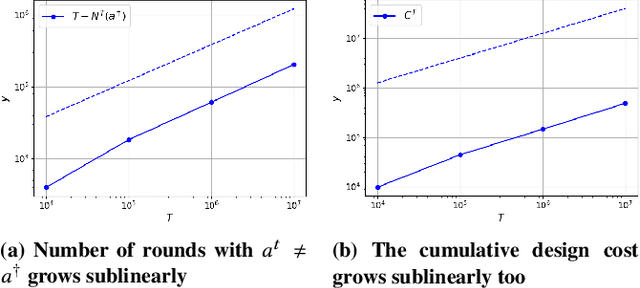Game Redesign in No-regret Game Playing
Paper and Code
Oct 18, 2021



We study the game redesign problem in which an external designer has the ability to change the payoff function in each round, but incurs a design cost for deviating from the original game. The players apply no-regret learning algorithms to repeatedly play the changed games with limited feedback. The goals of the designer are to (i) incentivize all players to take a specific target action profile frequently; and (ii) incur small cumulative design cost. We present game redesign algorithms with the guarantee that the target action profile is played in T-o(T) rounds while incurring only o(T) cumulative design cost. Game redesign describes both positive and negative applications: a benevolent designer who incentivizes players to take a target action profile with better social welfare compared to the solution of the original game, or a malicious attacker whose target action profile benefits themselves but not the players. Simulations on four classic games confirm the effectiveness of our proposed redesign algorithms.
 Add to Chrome
Add to Chrome Add to Firefox
Add to Firefox Add to Edge
Add to Edge